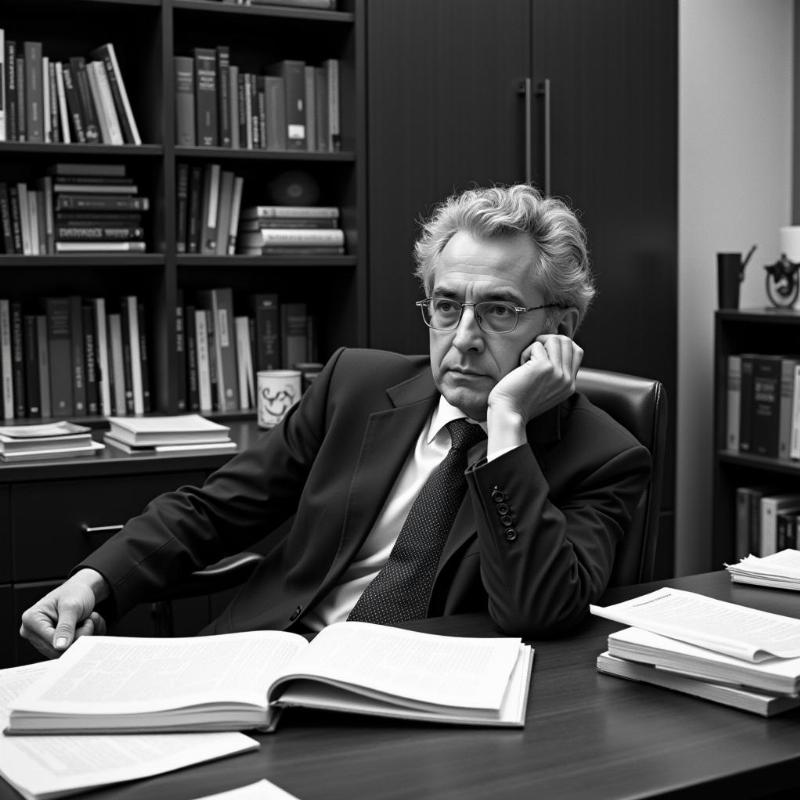Edward Said’s “Orientalism” has profoundly impacted postcolonial studies, but his memoir, “Out of Place,” offers a deeply personal exploration of displacement and identity. This book delves into Said’s experiences growing up as a Palestinian Christian in British-mandated Palestine and later in Egypt, before eventually settling in the United States. It grapples with the complexities of belonging, the constant negotiation of multiple cultures, and the enduring feeling of being “out of place.” This article will explore the key themes of Said’s memoir, examining how his personal experiences shaped his intellectual work and continue to resonate with readers today.
Understanding Displacement in “Out of Place”
Said’s memoir vividly portrays the emotional and psychological toll of displacement. He describes the feeling of being caught between worlds, never fully belonging to any single culture or place. His childhood was marked by a sense of alienation, both within the colonial context of British-mandated Palestine and within the predominantly Muslim society of Egypt. This experience of being an “outsider” profoundly influenced his later scholarship, particularly his critique of Orientalism. He understood firsthand the power dynamics inherent in representing the “other” and the ways in which such representations can perpetuate stereotypes and reinforce existing inequalities.
This feeling of displacement is a universal experience for many, especially those who have migrated or live in diaspora communities. Said’s eloquent exploration of this theme resonates with readers who have grappled with similar feelings of rootlessness and the search for identity in a fragmented world.
Identity and Hybridity in Said’s Narrative
“Out of Place” isn’t just about displacement; it’s also a powerful exploration of identity formation in a context of cultural hybridity. Said embraced his multiple identities – Palestinian, Christian, American, intellectual – refusing to be defined by any single label. He saw identity as a fluid and evolving construct, shaped by personal experiences, cultural influences, and historical forces.
His memoir challenges the notion of fixed and essentialized identities, arguing instead for a more nuanced understanding of the self. He celebrates the richness and complexity that arise from cultural mixing, while acknowledging the challenges and contradictions that can accompany such hybridity. This perspective offers a valuable framework for understanding identity in an increasingly globalized world.
 Edward Said at Columbia University
Edward Said at Columbia University
How does “Out of Place” connect to Said’s other works?
“Out of Place” provides crucial insights into the intellectual development of Edward Said. It illuminates the personal experiences that shaped his groundbreaking work on Orientalism and postcolonial theory. The themes of displacement, identity, and cultural hybridity, so central to his memoir, are also key concerns in his academic writings.
The Legacy of “Out of Place”
Edward Said’s “Out of Place” remains a powerful and relevant work, continuing to resonate with readers around the world. It offers a profound meditation on the complexities of identity, the challenges of displacement, and the search for belonging in a world marked by cultural and political divisions.
What is the significance of the title “Out of Place”?
The title itself speaks to the core of Said’s experience and the central themes of the memoir. It captures the sense of not quite belonging, of being perpetually on the margins, navigating the spaces between cultures and identities.
Conclusion
“Out of Place” is a must-read for anyone interested in postcolonial studies, cultural criticism, or the complexities of identity in a globalized world. It offers a deeply personal and insightful exploration of Edward Said’s own journey of displacement and self-discovery, while also providing a valuable framework for understanding the experiences of countless others who have navigated similar challenges. This memoir reminds us of the importance of embracing our multiple identities and the ongoing struggle for belonging in an increasingly interconnected yet fragmented world.
FAQ
- What is the main theme of “Out of Place”? The central theme is displacement and its impact on identity formation, exploring Said’s experience of being caught between cultures.
- How does “Out of Place” relate to Said’s work on Orientalism? The memoir provides a personal context for understanding Said’s critique of Orientalism, showing how his own experiences of displacement shaped his intellectual work.
- Is “Out of Place” an autobiography? While autobiographical, it’s considered a memoir, focusing on specific themes and experiences rather than a comprehensive account of his life.
- Who would enjoy reading “Out of Place”? Anyone interested in postcolonial studies, cultural criticism, memoir, or issues of identity and belonging would likely find this book engaging.
- What is the significance of hybridity in “Out of Place”? Said embraces the concept of hybridity, highlighting the richness and complexities of navigating multiple cultural identities.
- What is the lasting impact of “Out of Place”? The book continues to resonate with readers grappling with issues of displacement, identity, and belonging in a globalized world.
- Where can I find “Out of Place”? The book is widely available in bookstores and online retailers.
PlaTovi, your trusted travel companion, understands the desire to explore new cultures and experience the world firsthand. Whether you’re seeking adventure abroad or exploring the rich tapestry of India, PlaTovi offers a wide range of services, from customized tour packages and hotel bookings to visa assistance and airport transfers. We can help you create unforgettable travel experiences, just like the journey Edward Said embarked on. Connect with us at [email protected] or call us at +91 22-2517-3581. Let PlaTovi be your guide to discovering the world, one place at a time.